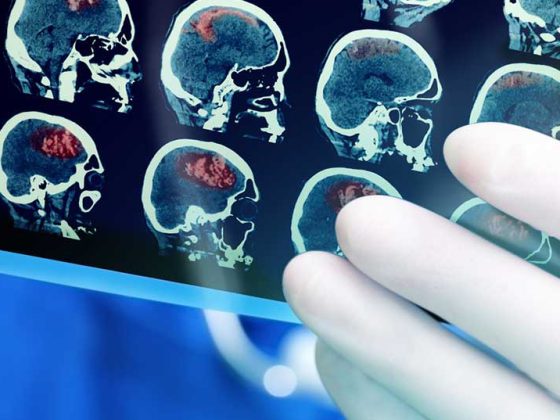Mourning itself is not an illness, but a natural process after the loss of a close person, which allows for positive experiences in addition to great stress. An open and supportive attitude toward dying and death is a quality characteristic of a good institution. In the case of very intense grief, emotional and somatic regulatory processes can be permanently disturbed. Intensive grief counseling or even therapy is only necessary in the rarest cases and requires comprehensive diagnostics as well as specific intervention.
Dealing with death is a complex issue in our society and therefore also in medical care, involving legal, medical, social as well as psychological issues. This article will briefly discuss the most important issues related to grief and grief processing resp. Grief counseling outlined.
People in the helping professions are confronted with losses again and again; they should be able to cope with the despair of the relatives and at the same time process their own dismay. Both caregivers and loved ones are often left alone in their loss and experience themselves as helpless in the situation of death. Nevertheless, the situation must be handled competently. In many cases, caregivers are confronted with the grief and pain of loss without having been specifically trained for it. Recently, the problem has been recognized and increasingly there is literature that attempts to fill this gap [1]. However, especially in nursing, there are different ideas on how to deal with grief, which are sometimes applied without reflection.
It is all the more important that loss is not seen as a primary caregiving task, but as a life event that does not per se cause suffering requiring medical treatment of any kind – keyword “medicalization” of grief [2]. Nor is spiritual care mandatory in the event of death. However, it makes extreme sense to ask yourself how to deal with losses when practicing a helping profession. This handling affects the institution itself on the one hand, and the patients and their relatives and the persons employed in the institution on the other. The death of a patient is not a welcome moment. Departments that care for people for whom there is no longer any “medicine” are often outsourced from the usual operations. It is especially important for health care institutions to become aware of their own culture in dealing with dying and death, so that loss is not treated bashfully as an “accident.” For the relatives, it is central to know that the dignity of the person will be preserved even after his or her passing. Particularly important for the group of people who work in an institution is the certainty that not only life-saving measures and the time and energy spent on them have value, but also “soft” factors, e.g. the provision of a farewell room in which both relatives and medical staff can come to terms with the loss.
Burden of loss
Mourning itself is not an illness, but a natural process after the loss of a close person, which allows for positive experiences in addition to great stress. Nevertheless, the emotional burden is often great and can manifest itself in various ways. Intense emotions of fear, anger, guilt, and sadness occur, as well as feelings of emotional emptiness, coldness, and states of relief or loneliness. At the behavioral level can be observed:
- Apathy
- Hysteria
- Narcotic behavior (medication, alcohol, drugs)
- Extensive stimulus seeking (also sexual)
- Self-injury (up to suicide)
- Eating and sleeping disorders.
- On the cognitive level show:
- Denial (not wanting to admit)
- Thoughtless
- Mind racing.
- Somatically, grief can manifest itself in:
- Pain
- Motor restlessness
- Cardiovascular disorders.
The intensity of the grief reaction results from the relationship with the deceased person (determines the grief reaction more than other circumstances). In the case of very intense grief, emotional and somatic regulatory processes can be permanently disturbed. This impairs the adaptive function of emotional experience – grievers therefore do not always behave appropriately to the situation in social contexts. In the long term, this can lead to psychological and somatic disorders.
The loss demands a high level of adaptation, which is not successful in all cases. It is estimated that in about 5-15% of all bereavement cases, complications of grief are to be expected [3], mainly manifested in a persistent grief reaction. The reasons are as varied as the forms of mourning themselves. Often, a complication of grief results from an existing or remitted mental disorder. It has been estimated that in cases of persistent grief, current comorbidity with depression is 55% as well as with any anxiety disorder is over 60% [4].
To date, the diagnosis of “persistent grief” does not exist for either the ICD or DSM. The current revision of DSM V did not include persistent or complicated grief as a stand-alone diagnosis, despite supportive findings; however, one is expected for the pending revision of ICD-11 [5]. Despite the unclear diagnostic situation, it is undisputed that grief can take on pathological features and in this case psychological intervention is indicated.
Grief counseling or psychological intervention?
Grief therapy is for people who experience their grief as unbearable or who have turned to a psychotherapist for other problems and realize during treatment that their problems are at least partly related to previously unprocessed grief. Today, grief work is usually based on a task-oriented view [6]. Worden distinguishes four tasks that grievers must perform to adjust to loss:
- Accepting the reality of loss. Many grievers struggle to accept the reality of their loved one’s death. Reality seems like a bad dream from which you want to escape. Accepting the loss properly is a process that can take several months.
- Experiencing and processing the pain of loss. Grief that is not felt emotionally may manifest somatically in symptoms – or the emotional pain may set in as a delayed grief reaction later, weeks or months after the loss. The extent of emotional pain reactions (such as feeling sad, angry, guilty, anxious, or extremely lonely) is less crucial for good processing than is generally assumed, since the intensity of the grief reaction is influenced by many factors.
- Adapting to an environment where the deceased person is missing. It can take months to realize all facets of the loss. The growing sense of loss is one reason for the long time it takes to process the death of a loved one. This involves an adjustment to new life circumstances (external), to new roles and social status, adjustments that affect self-esteem and sense of self-efficacy (internal), and changes in the “belief system” – beliefs and one’s worldview (spiritual).
- Redefine the relationship with the deceased person. The deceased person does not have to be erased from life, but the relationship should be reshaped in a way that allows one to continue living. New, even intimate relationships with other people should be possible if the spouse is deceased. To what extent the bond is completely dissolved (“modern” view) or completely retained (“romantic” view) is something the mourner must figure out for himself. It is important to accept the death of the loved one.
In addition to the emotional processing, the orientation to life without the deceased relative is one of the central tasks of grieving persons.
Psychotherapy is indicated for grief only if it is a complicated or persistent grief reaction in which one or more of the tasks outlined above cannot be accomplished. This is an important statement, because in many circles the myth persists that grief counseling is appropriate in any case. This may indeed be the case from different perspectives, but one should not be under the illusion that with such low-threshold offers a psychopathological development can be prevented or that grief is experienced less severely through professional accompaniment. Grief can – in rare cases – actually develop into a mental disorder. This seems to be especially the case when there is already a vulnerability to a mental disorder. As mentioned, the comorbidity of other mental disorders with complicated grief is very high. In a recent meta-analysis, Currier and coworkers [7] confirmed the finding that the effect size increases from near 0 for therapy for normal grief to a mean effect size of d >0.50 for targeted interventions for a complicated grief response.
Professionalized grief counseling offered in everyday medical settings must not encourage the “medicalization” of everyday life. The loss cannot be repaired but the suffering caused by the loss may be alleviated. The mourning work of dying patients and their relatives can be promoted by the accompanying staff, not only by pastoral care, through sympathy, comfort and human closeness.
Literature:
- Schärer-Santschi E (ed.): Grieving. Accompanying grieving people in palliative care and nursing. Hans Huber, Hogrefe AG, Bern 2012.
- Bandini J: The Medicalization of Bereavement: (Ab)normal Grief in the DSM-5. Death Studies 2015; 39(6): 347-352.
- Znoj HJ, Maercker A: Grief work and therapy of persistent grief. In: Linden M, Hautzinger M (eds.): Behavior therapy manual. 8 ed. Springer, Heidelberg 2015; 431-435.
- Simon NM, et al: The prevalence and correlates of psychiatric comorbidity in individuals with complicated grief. Comprehensive Psychiatry 2007; 48: 395-399.
- Bryant RA: Prolonged grief: where to after Diagnostic and Statistical Manual of Mental Disorders,5th Edition? Current Opinion Psychiatry 2014; 27: 21-26.
- Worden WJ: Tasks and Mediators of Mourning: A Guideline for the Mental Health Practitioner. In Session: Psychotherapy in Practice 1996; 2(4): 73-80.
- Currier JM, Neimeyer RA, Berman JS: The Effectiveness of Psychotherapeutic Interventions for Bereaved Persons: A Comprehensive Quantitative Review. Psychological Bulletin 2008; 134(5): 648-661.
InFo ONCOLOGY & HEMATOLOGY 2015; 3(11-12): 22-24.
HAUSARZT PRAXIS 2016; 11(8): 8-10











